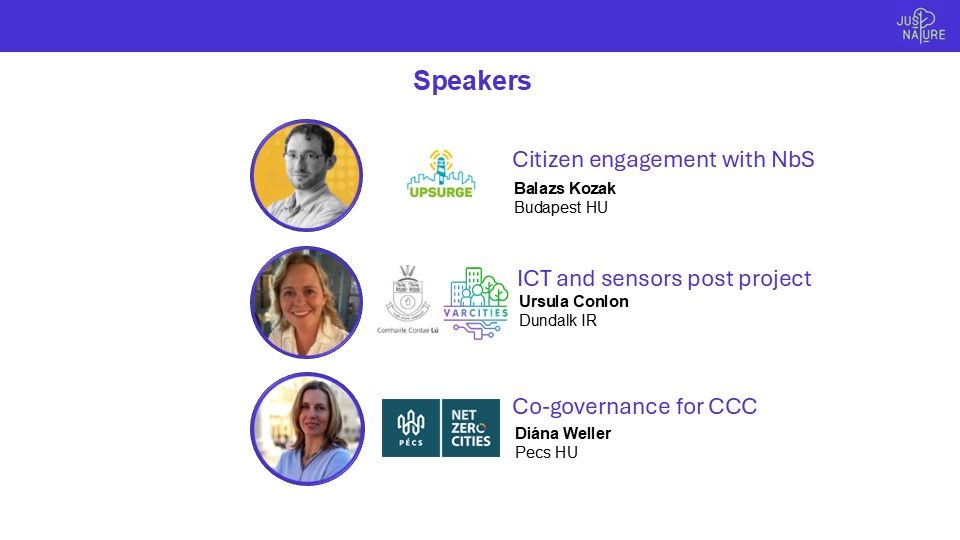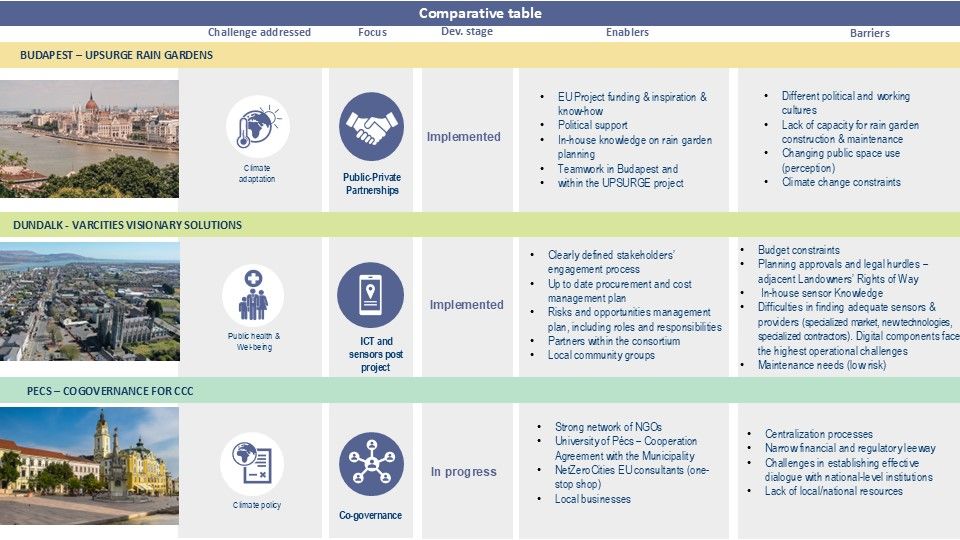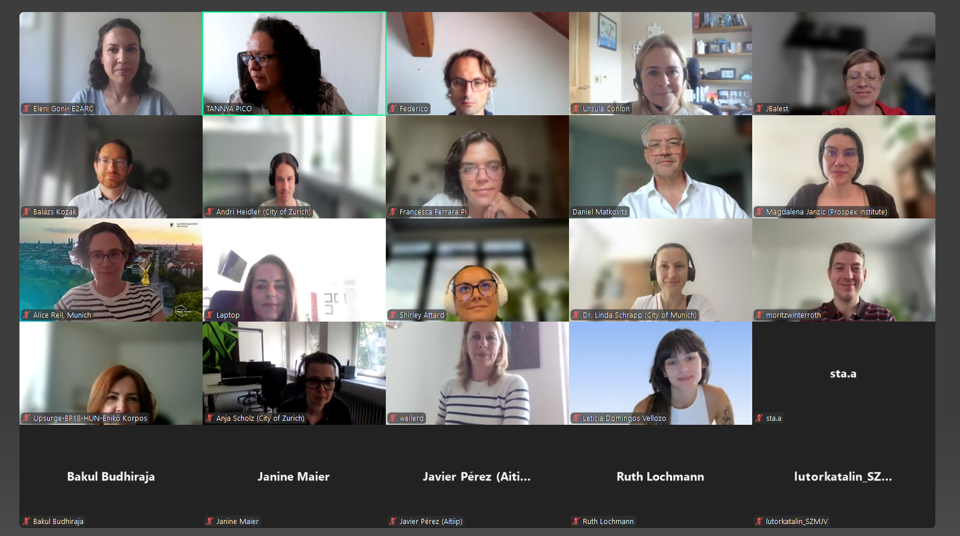The JUSTNature project successfully hosted its Online Multilateral City Exchange Workshop on June 17, 2025. The event brought together city representatives, urban practitioners, and sustainability experts from across Europe in a collaborative effort to share experiences about the adoption of Nature-based Solutions. It featured both members of our CiPeLs as well as from the project's twinning cities. Co-organized by the Prospex Institute and the Institute for Urban Excellence, the event was part of JUSTNature’s Twinning Cities programme within the project’s broader mission to foster inclusive, equitable, and climate-resilient cities across Europe.
Held in a new, experimental formal, the exchange focused on:
- Strengthening cross-city ties and networks,
- Facilitating open knowledge sharing, and
- Catalysing new learnings to support urban climate action.
Participants showcased impactful practices under several core JUSTNature themes, including: Public–Private Partnerships, co-governance, ICT and sensors post-project. We had exceptional guests who held a series of presentations and discussions led by experts and key stakeholders from various organisations involved in urban sustainability initiatives. The session was moderated by Tannya Pico (iUE). The introduction was made by the JUSTNature team: it started with a welcome by Daniel Matkovits (PI), followed by Eleni Goni (E2ARC) presenting the JUSTNature’s City Practice Labs (CiPeLs) and Magdalena Janzic (PI) introducing the JUSTNature’s Twinning Cities programme. Then, the guest speakers presented their projects.



